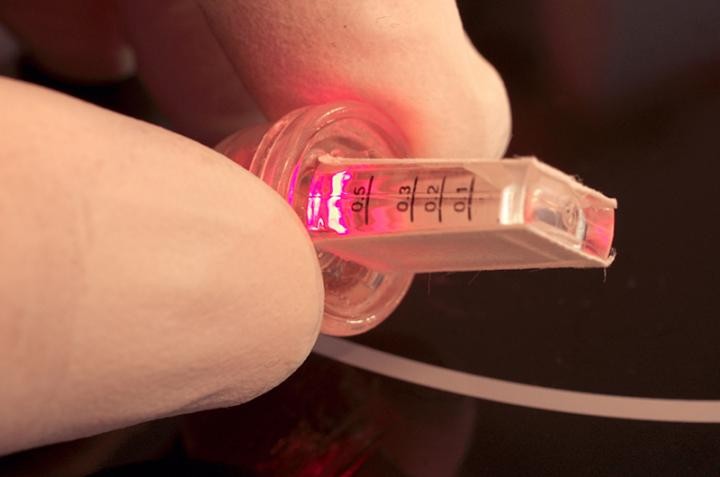Researchers at the Department of Biosystems in Basel have developed a novel gene regulation method that enables thought-specific brainwaves to control the conversion of genes into proteins, so the genes expression. It opens new ways to control gene expression within your brain and could lead to brain surgeries.
In this new study, bioengineers placed implants inside mice that held small chambers of genetically modified cells. Humans wearing EEG headsets used their thoughts, creating brain waves. The resulting EEG data went to a controller that created a magnetic field that charges the implant. This caused a LED light to go off in the near-infrared range, which isn’t harmful to cells or tissue. This light hit the chamber of cells, resulting in the cells producing the protein. The implant was initially tested in cell cultures and mice, and controlled by the thoughts of various test subjects. The researchers used SEAP for the tests, an easy-to-detect human model protein which diffuses from the culture chamber of the implant into the mouse’s bloodstream. The experiment was a success, the brainwaves affect the mices genes!
“Controlling genes in this way is completely new and is unique in its simplicity,” explains researcher Fussenegger.
The light-sensitive optogenetic module that reacts to near-infrared light is a particular advancement. The light shines on a modified light-sensitive protein within the gene-modified cells and triggers an artificial signal cascade, resulting in the production of SEAP. Near-infrared light was used because it is generally not harmful to human cells, can penetrate deep into the tissue and enables the function of the implant to be visually tracked.
Of course, this experiment wasn’t just about affecting gene expression in mice. The hope is that this technology can someday help humans. In the future, such a brain wave implant could tackle chronic pain, by detecting brain waves associated with that pain early and triggering proteins that stop the pain before it happens.





